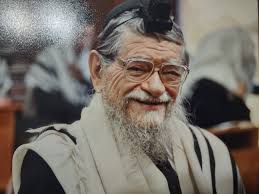Lessons I Learned from Great People Rav Chayim Dov Keller, zt’l, Rosh Yeshiva of Telz Chicago

Rav Chayim Dov Keller and his brother-in-law, Rav Avraham Chayim Levin, zt”l, together started the yeshiva gedola of Telz, Chicago branch, which now is responsible for the education of a grandson of mine and also sports my nephew in its kollel, both of whom are named Nachi Kaganoff, after my father. Rav Keller’s wife was one of the three daughters (and one son, Rav Avraham Chayim) of Rav Eliezer Levin, who had left Lithuania in 1939 to become a rav in Erie, Pennsylvania (very briefly) and then in Detroit for over 50 years, until his passing. The other two daughters were married to Rabbi Yaakov Lipschutz, zt”l, who, in his day, was one of the greatest experts in kashrus, and ybl”c, Rabbi Berel Wein. Rav Levin was probably the last surviving talmid of the Kelm yeshiva. We can hardly even imagine what it was like to have been a true product of what was called the Kelm Talmud Torah.

















